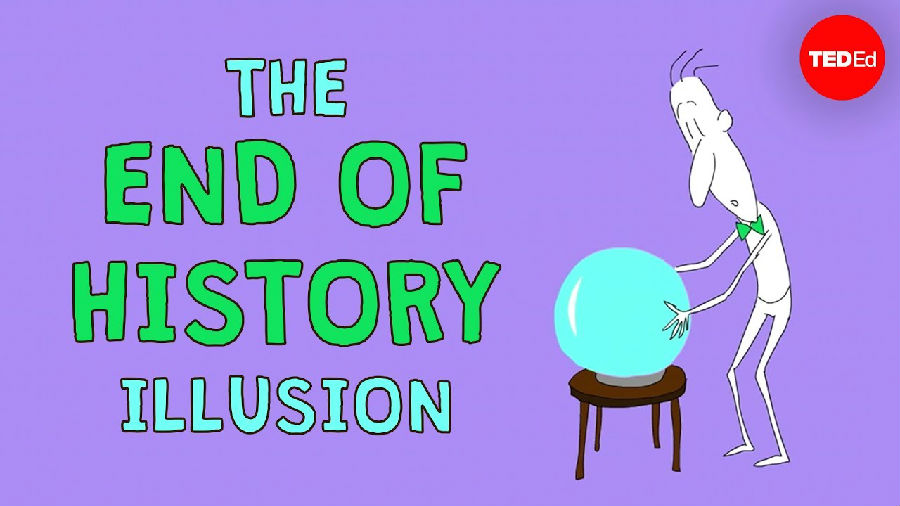(单词翻译:单击)
When trains began to shuttle people across the coutryside, many insisted they would never replace horses.
当火车开始载着人们穿越在乡村间之时,很多人坚持说它们永远也无法代替马匹。
Less than a century later, people repeated that same prediction about cars, telephones, radio, television, and computers.
不到一个世纪,人们对车辆重复了同样的预测,电话、广播、电视和电脑。
Each had their own host of detractors. Even some experts insisted they wouldn't catch on.
它们各有各的批评者。甚至很多专家坚持它们永远无法追赶上。
Of course, we can't predict exactly what the future will look like or what new inventions will populate it.
当然,我们无法准确的预测未来是什么样子或是什么样的发明会成为潮流。
But time and time again, we've also failed to predict that the technologies of the present will change the future.
但是历史总是相似的,我们又没有预测到当代的技术会改变未来。
And recent research has revealed a similar pattern in our individual lives: we're unable to predict change in ourselves.
近期的研究人员发现了我们个人生活的相似模式:我们无法预测将会发生在我们自己身上的改变。
Three psychologists documented our inability to predict personal change in a 2013 paper called, "The End of History Illusion."
三位心理学家在2013年的论文《历史幻想的终结》中论证了我们无法预测个人的改变。
Named after political scientist Francis Fukuyama's prediction that liberal democracy was the final form of government
政治学家法兰西斯·福山的预测阐述自由民主将会是最后一种形式的政府结构,
or as he called it, "the end of history," their work highlights the way we see ourselves as finished products at any given moment.
或者他称其为“历史的终结”,他们的工作强调了在任何的时期我们把自己看作是成品。
The researchers recruited over 7,000 participants ages 18 to 68.
研究人员招募了超过7000位16到68岁的参与者。
They asked half of these participants to report their current personality traits, values, and preferences,
他们询问了一半的参与者报告他们当前的人格,价值和喜好,
along with what each of those metrics had been ten years before.
还有他们十年前相同的指标。

The other half described those features in their present selves, and predicted what they would be ten years in the future.
另一半描述他们现在的特点,然后预测十年后他们会变成什么样子。
Based on these answers, the researchers then calculated the degree of change each participant reported or predicted.
基于这些答案,研究人员计算了每一位参与者报告或是预测的改变的程度。
For every age group in the sample, they compared the predicted changes to the reported changes.
每一个年龄组为样本,他们对比了预测的改变和实际上的改变。
So they compared the degree to which 18-year-olds thought they would change to the degree to which 28-year-olds reported they had changed.
所以他们对比了18岁参与者认为他们可能会改变的程度和28岁参与者认为他们已经改变的程度。
Overwhelmingly, at all ages, people's future estimates of change came up short compared to the changes their older counterparts recalled.
压倒性的,所有的年龄组,人们对未来变化的估计相比年长被试回忆的变化远远不够。
20-year-olds expected to still like the same foods at 30, but 30-year-olds no longer had the same tastes.
20岁的人们认为他们30岁时仍然会喜欢同样的食物,但30岁的时候便不再喜欢同样的味道了。
30-year-olds predicted they'd still have the same best friend at 40, but 40-year-olds had lost touch with theirs.
30岁的预测在40岁的时候会有同样的朋友,但是40岁的时候他们早已失去联系。
And 40-year-olds predicted they'd maintain the same core values that 50-year-olds had reconsidered.
40岁的人们预测他们留有同样的喜好而在50岁时已经不再是了。
While older people changed less than younger people on the whole, they underestimated their capacity for change just as much.
当年长的人们与年轻的人们相比改变的更少,他们低估了他们的改变能力。
Wherever we are in life, the end of history illusion persists: we tend to think that the bulk of our personal change is behind us.
在我们人生中的任何时点,历史幻象的终结持续着:我们倾向于认为我们人生大部分的改变已经过去。
One consequence of this thinking is that we're inclined to overinvest in future choices based on present preferences.
这种思考方式的结果是我们倾向去过度投资基于我们现在的喜好形成的未来的选择。
On average, people are willing to pay about 60% more to see their current favorite musician ten years in the future
平均来说,人们愿意多付60%在未来十年里去看他们当前最喜欢的音乐家,
than they'd currently pay to see their favorite musician from ten years ago.
相较于现在付钱去看他们十年前最喜欢的音乐家。
While the stakes involved in concert-going are low,
即使关于去演唱会的时间成本不高,
we're susceptible to similar miscalculations in more serious commitments, like homes, partners, and jobs.
我们总是会在更加严肃的事情中被这种错误的思考而误导,像是家庭,伙伴和工作。
At the same time, there's no real way to predict what our preferences will be in the future.
同时,并没有真正的方式去预测我们未来的爱好将会变成什么样子。
Without the end of history Illusion, it would be difficult to make any long-term plans.
除去历史幻象的终结,做出长期的计划是非常困难的。
So the end of history illusion applies to our individual lives, but what about the wider world?
所有历史幻象的终结适用于我们每一个个体,但是如果是更大的世界呢?
Could we be assuming that how things are now is how they will continue to be?
我们能不能假设现在的事情以后也会发生?
If so, fortunately, there are countless records to remind us that the world does change, sometimes for the better.
如果是的话,幸运的,有不计其数的记录提醒我们世界会改变的,有时变得更好。
Our own historical moment isn't the end of history, and that can be just as much a source of comfort as a cause for concern.
我们自己的历史性瞬间并不是世界的终结,这既可以让人感到心安,也能让人感到担忧。


